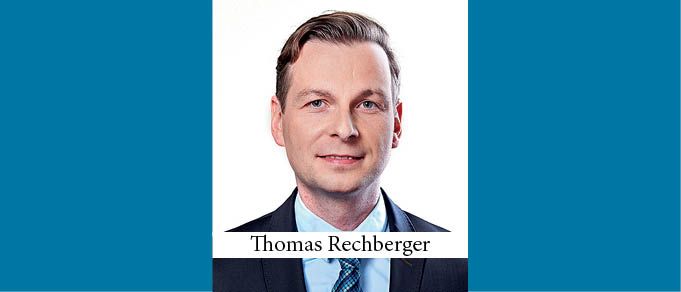After the first industrial revolution, which involved the discovery and use of steam power, the second, which involved the discovery and use of electricity, and the third, which involved the use of electronics and information and communication technologies such as computers, the fourth industrial revolution has now dawned. This one involves the digitization and interconnection of computers, machines, and people. Examples of this new development are cyber-physical systems: Computer-monitored-and-controlled mechanisms, such as vehicle assistance systems, that support drivers in driving or completely replace them altogether (this is known as “Smart Mobility”), thanks to communication and interaction with other vehicles or stationary devices in the vicinity.
First Reactions of Czech, German, and Austrian and Legislators to This New Trend
In Germany, the legislator introduced a wider concept of “vehicle driver” into the country’s Road Traffic Act in 2017. Under this Act, a driver is also a person who activates an automated steering function and uses it to drive the vehicle, even if that person does not control the vehicle with his own hands. While the driver may divert his attention from surrounding traffic when a highly-automated driving function is activated, the driver must remain vigilant so that he can assume direct control at any time. The driver must immediately take control of the vehicle if the automated system prompts him or if the driver recognizes or should recognize that the prerequisites for using the driving function have ceased to be met. German law distinguishes between the liability of the driver and of the vehicle operator (owner). The driver, unlike the operator (owner) (who is strictly liable), is not liable if he proves that he has not caused the damage by his fault (negligence or intention) – e.g., if he took control of the vehicle in time.
In Austria, the relevant regulation is even more concise. The Automated Driving Regulation, which currently regulates only the testing of autonomous microbuses, assistance systems on motorways, and military vehicles, was issued in 2016. This regulation emphasizes that although the driver may transfer certain driving tasks to autonomous systems, he still remains responsible for so doing, and in the event of a crisis situation, he must immediately take them back.
While the German and Austrian legislators have already dealt with the question of liability of automated assistance systems, in the Czech Republic only a German-legislation-inspired working group proposal for an amendment to the Road Traffic Act has been prepared. Currently, the liability of autonomous vehicles in the Czech Republic must be deduced from existing liability rules, especially from the special rules of liability for traffic damage.
On the basis of these special rules, the transport operator and vehicle operator (owner) pay damages caused by the “special nature of the operation” of the transport or the operation of a vehicle. There is no relief from liability, however, if the damage was caused by circumstances that originated in the vehicle’s operation (e.g. if damage has arisen due to the poor technical condition of the vehicle or due to failure of the driver). The possibility of waiving liability remains only if the damage was caused by circumstances in which no other ordinary traffic participant could have prevented the damage, despite making every effort that could reasonably have been required (e.g. as a result of force majeure, such as a natural disaster).
In connection with autonomous vehicles, it is worth discussing whether or not the element of a certain “autonomy” of a vehicle driving system should be included inthe above-mentioned concept of the “special nature of the operation.” This new aspect of the special operational nature of the transport could be taken into account when assessing the possibility of the operator’s liberation in the way that the damage caused by an autonomous vehicle has its origin in the operation and the operator cannot be relieved of his liability.
The liability of the transport and vehicle operator must be distinguished from that of the driver, who is liable under the general rules on tort liability; i.e. fault-based liability.
Although in the medium term, the necessary legal framework to cope with the challenges of digitization in the automotive sector exists in the Czech Republic, it remains necessary to supplement and ultimately complete this legal framework with life experience through legal practice. Lawyers need to be aware of the possibilities and potentials available in the field, and to apply the law accordingly in cooperation with the authorities and courts.
By Thomas Rechberger, Partner, Taylor Wessing Czech Republic
This Article was originally published in Issue 6.2 of the CEE Legal Matters Magazine. If you would like to receive a hard copy of the magazine, you can subscribe here.



